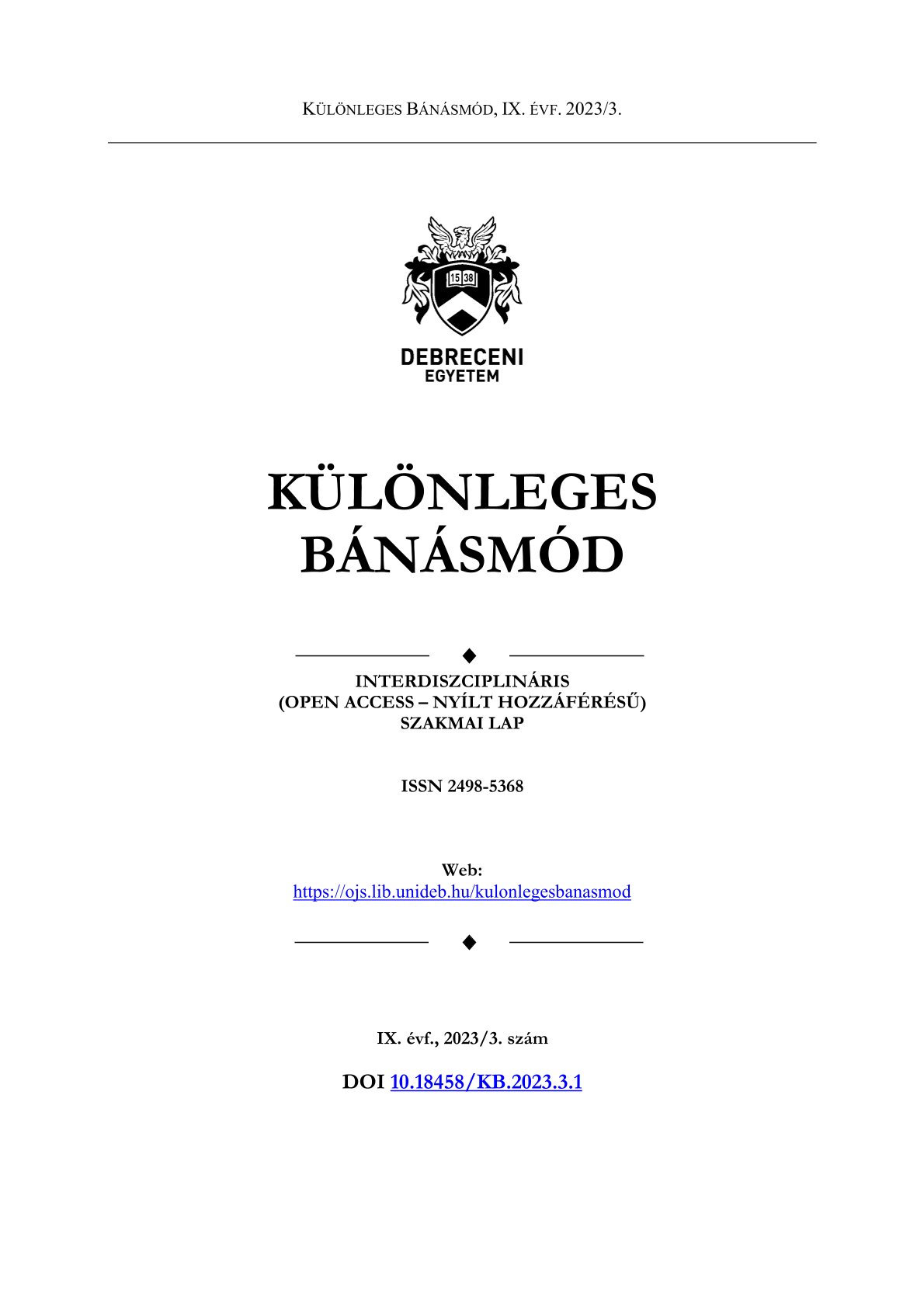REGGIO EMILIA APPROACH AND PRE-SCHOOL EDUCATION IN DUBAI
Authors
View
Keywords
License
Copyright (c) 2023 Fatemeh Faroughi, Anikó Varga Nagy (Ph.D.)

This work is licensed under a Creative Commons Attribution-NonCommercial-NoDerivatives 4.0 International License.
How To Cite
Abstract
Early childhood education and care have become an important aspect of society and the well-being of people. A proper early childhood education can build a solid foundation for lifelong learning achievement and reduce the cost of lost talent and spending on social, health, and even justice systems. Within early childhood education, the Reggio Emilia approach has gained popularity around the world and a number of countries in the West employ this approach in their early childhood educational system. In the young and prosperous country of the United Arab Emirates with its famous city of Dubai, this child-centered approach is also famous amongst affluent families with young children. This paper looks into early childhood education and the Reggio Emilia approach in the city of Dubai and how this is presented in the educational system of the UAE.
References
- Alhosani, N. (2022). The influence of culture on early childhood education curriculum in the UAE. ECNU Review of Education, 5(2), 284–298. DOI 10.1177/20965311221085984
- Foerch, D., & Iuspa, F. (2016). The internationalisation of the Reggio Emilia philosophy. Revista Contrapontos, 16(2), 321–350. DOI 16.321.10.14210
- Forman, G., Gandini, L., & Edwards, C. (1998). The hundred languages of children: The Reggio Emilia Approach - Advanced Reflections. Greenwood.
- Gandini, L. (n.d.). Fundamentals of the Reggio Emilia Approach to Early Childhood Education. Young Children, 49(1), 4–8.
- Malaguzzi, L., & Gandini, L. (1993). For an Education Based on Relationships. Young Children, 49.
- Rinaldi, C. (2013). Re-imagining childhood: The inspiration of Reggio Emilia education principles in South Australia. Government of South Australia.
- Pálfi S.; Rákó, E.; Varga Nagy. A. ; Teszenyi T. (2020). Children’s rights in Hungary in early childhood education and care In Jane, Murray; Beth, Blue Swadener; Kylie, Smith (edit) The-Routledge-International-Handbook-of-Young-Childrens-Rights.London, Routledge of Taylor and Francis Group. 354-365.
- Tijnagel-Schoenaker, B. (2018). The Reggio Emilia approach… the Hundred languages. Prima Educatione, 1, 139. DOI 10.17951/pe.2017.1.139
- Valentine, M. (1999). The Reggio Emilia Approach to Early Years Education. Early Education Support Series.
- Vandenbroeck, M. (2020). Early childhood care and education policies that make a difference. The Palgrave Handbook of Family Policy, 169–191. DOI 10.1007/978-3-030-54618-2_8
- Vargáné, Nagy A. (2018): A Reggio pedagógia sajátos szemlélete. [The Special Approach of Reggio Pedagogy] In Vargáné, Nagy A. (szerk.). Családi nevelés 3. Debrecen,Didakt, 131-153.


 https://doi.org/10.18458/KB.2023.3.81
https://doi.org/10.18458/KB.2023.3.81